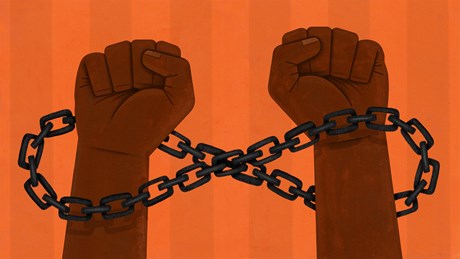Evangelicals are superb at the first task. To what extent do they embrace the second as well?

In 1979, Charles Colson, the nation’s best-known evangelical prison ministry director, visited the Washington State Penitentiary in Walla Walla to share the gospel of Jesus Christ. Colson, who had been in prison himself only five years earlier for his role in the Watergate scandal, was known for his sympathy to prisoners’ concerns.
When he found out that the men in Walla Walla’s solitary confinement facility had to live with human waste and rotting food that the warden refused to clean up, he promised to lobby the state legislature for change. The effort succeeded, and Colson expanded his campaign for prison reform nationwide. But because Colson was no liberal, his ministries depended on a close alliance with law-and-order evangelicals and even law-and-order politicians who helped create the prison system that Colson found so troubling.
This paradox is central to the historical narrative that Aaron Griffith presents in God’s Law and Order: The Politics of Punishment in Evangelical America. With an undergraduate degree from Wheaton College and a history of personal involvement in prison ministry, Griffith sympathizes with many of the evangelicals profiled in the book—especially Colson, whom he describes as genuinely compassionate and sincerely interested in prisoners’ well-being.
But with a doctoral degree from Duke University Divinity School, Griffith is also well-versed in liberal Protestant critiques of evangelical politics, and he shares the concerns of critics who question whether evangelical support for law and order can be squared with a gospel-centered theology. Have evangelicals adopted their seemingly contradictory views of the prison system in spite of their theology, or because ...
from Christianity Today Magazine
via

.gif)

.gif)

.gif)
.gif)
